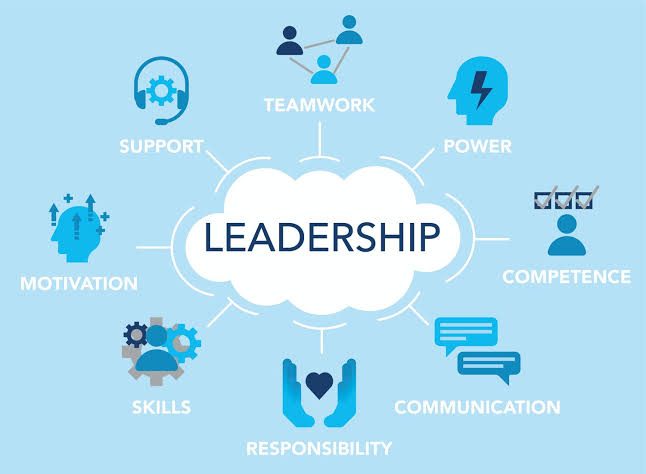Scholarship programs in Canada and worldwide have changed a lot in the last ten years. The selection process is now more detailed and competitive. While good grades are still important, leadership skills have become a key factor for winning scholarships, especially for top awards. By July 2025, most Canadian scholarships, for both undergraduate and graduate students, look for applicants who not only have strong academic abilities but also can lead, inspire, and create positive impacts in their communities or studies. Leadership is no longer just a nice-to-have skill—it is a must-have quality that sets the best candidates apart.
Why Leadership Is a Key Scholarship Criterion
Leadership reflects a person’s ability to take initiative, inspire others, and create solutions to real-world challenges. Scholarship providers increasingly look for applicants who can demonstrate a history of taking responsibility beyond their academic duties—through volunteerism, advocacy, community projects, or entrepreneurship. They want to invest in individuals who will be future leaders in academia, business, politics, science, and social development.
In 2025, with the growing urgency to address global challenges such as climate change, digital transformation, inequality, and public health, leadership potential is often viewed as more than just a personality trait. It is assessed as a measurable and observable quality that includes collaboration, vision, problem-solving, and the ability to bring people together for a common goal. Applicants who can show leadership impact—whether through organizing youth programs or launching digital start-ups—tend to stand out more in scholarship evaluations.
Moreover, institutions and donors who fund scholarships often do so with the hope that recipients will become ambassadors of change, contribute to research, or create scalable innovations that benefit society. In this context, leadership becomes a direct signal of future value.
Types of Leadership That Scholarship Committees Recognize
Leadership is broad and can manifest in different forms. Not all applicants will have held official positions like class president or team captain. However, what matters most is the demonstration of leadership qualities through initiative, consistency, and impact.
Academic leadership is one such form—students who mentor peers, organize academic groups, or take the lead in research projects show an ability to influence and contribute intellectually. These experiences reveal leadership in a learning environment and are highly regarded, especially for graduate scholarships.
Community leadership is another area. Volunteering with non-profits, initiating fundraising events, or launching a local awareness campaign shows social responsibility and dedication to civic engagement. Scholarship panels favor applicants who take active roles in building better communities.
Professional or entrepreneurial leadership, particularly for postgraduates, can also be impactful. Leading a project at work, founding a small business, or launching a tech solution to solve a public need reflects practical leadership, innovation, and execution—qualities highly sought after in 2025.
How to Demonstrate Leadership Effectively in Applications
It is not enough to simply state that you have leadership skills; scholarship evaluators are looking for proof and real-life examples. This means you must provide specific accounts of what you did, what challenges you faced, what actions you took, and the results or impact of your leadership.
In personal statements or essays, structure your examples using the STAR method—Situation, Task, Action, and Result. This approach allows you to clearly articulate how you approached a situation, what your goals were, what steps you took, and what was achieved. Whether you led a school clean-up initiative or organized a tech workshop for underprivileged youth, you need to show your contribution and its tangible effect.
Additionally, leadership stories should be authentic. Avoid exaggeration or empty buzzwords. Instead, focus on showing growth, learning, and commitment. Leadership isn’t just about success; it’s also about resilience and how you respond to failure or setbacks.
Leadership in Group or Team Contexts
In 2025, leadership is no longer viewed as a solo endeavor. Scholarship panels often look at how well applicants can work with others, collaborate in teams, and contribute to shared goals. Leadership in team settings reflects emotional intelligence, negotiation skills, and the ability to inspire peers.
You should highlight group projects, collaborations, and volunteer experiences where your leadership brought others together. For instance, coordinating a school play, managing a community food drive, or leading a research team in university shows that you can balance leadership with empathy, listening, and delegation.
Furthermore, your ability to create inclusive spaces, resolve conflict, and ensure equal participation in group efforts is particularly valuable in today’s multicultural, interconnected world. These skills demonstrate that you’re not just a leader in name, but someone who nurtures and supports leadership in others as well.
Leadership Qualities Valued in 2025
The definition of leadership has expanded significantly over time. In 2025, the most valued leadership traits include adaptability, creativity, cultural competence, and digital fluency. With many scholarship programs now being hybrid or fully online, demonstrating that you can lead in digital environments—like organizing webinars, managing virtual teams, or coordinating online campaigns—is an added advantage.
Cultural awareness and the ability to engage across diverse communities is another trait scholarship bodies appreciate. Canada’s multicultural environment requires future leaders to be inclusive, open-minded, and respectful of diversity. Those who lead with empathy, celebrate different perspectives, and seek global solutions are more likely to gain scholarship approval.
Also, ethical leadership is increasingly important. Academic integrity, transparency, and accountability in leadership actions show that you are not only capable but principled—a quality institutions value when awarding long-term investment in someone’s education.
Leadership in Letters of Recommendation
Another way to highlight your leadership skills is through your letters of recommendation. Your referees should be individuals who have directly witnessed your leadership in action—teachers, mentors, supervisors, or community leaders. Their letters should describe specific scenarios where you took initiative, solved problems, or motivated others.
Make sure your referees understand the importance of emphasizing leadership when writing their recommendations. Guide them by sharing your scholarship goals and reminding them of the leadership roles you’ve held. This ensures their testimony aligns with the values scholarship committees are seeking.
In 2025, many scholarship panels rely heavily on references to confirm an applicant’s authenticity and leadership behavior. A compelling letter that vouches for your leadership can significantly enhance your profile.
Conclusion: Leadership as a Defining Edge
Leadership is no longer an optional quality—it’s a defining edge in scholarship selection. As academic funding becomes more competitive in 2025, applicants who bring leadership to the table are those who get noticed. Whether your leadership is visible in your community, classroom, workplace, or online, it speaks volumes about your ability to inspire, influence, and innovate.
Scholarships aren’t just awarded to reward past achievement—they are given to those who show promise of future impact. Leadership proves that you have the potential not just to learn but to lead, to build, and to leave a legacy. Developing and demonstrating these skills not only increases your scholarship eligibility but also shapes you into a person who creates value wherever they go.



